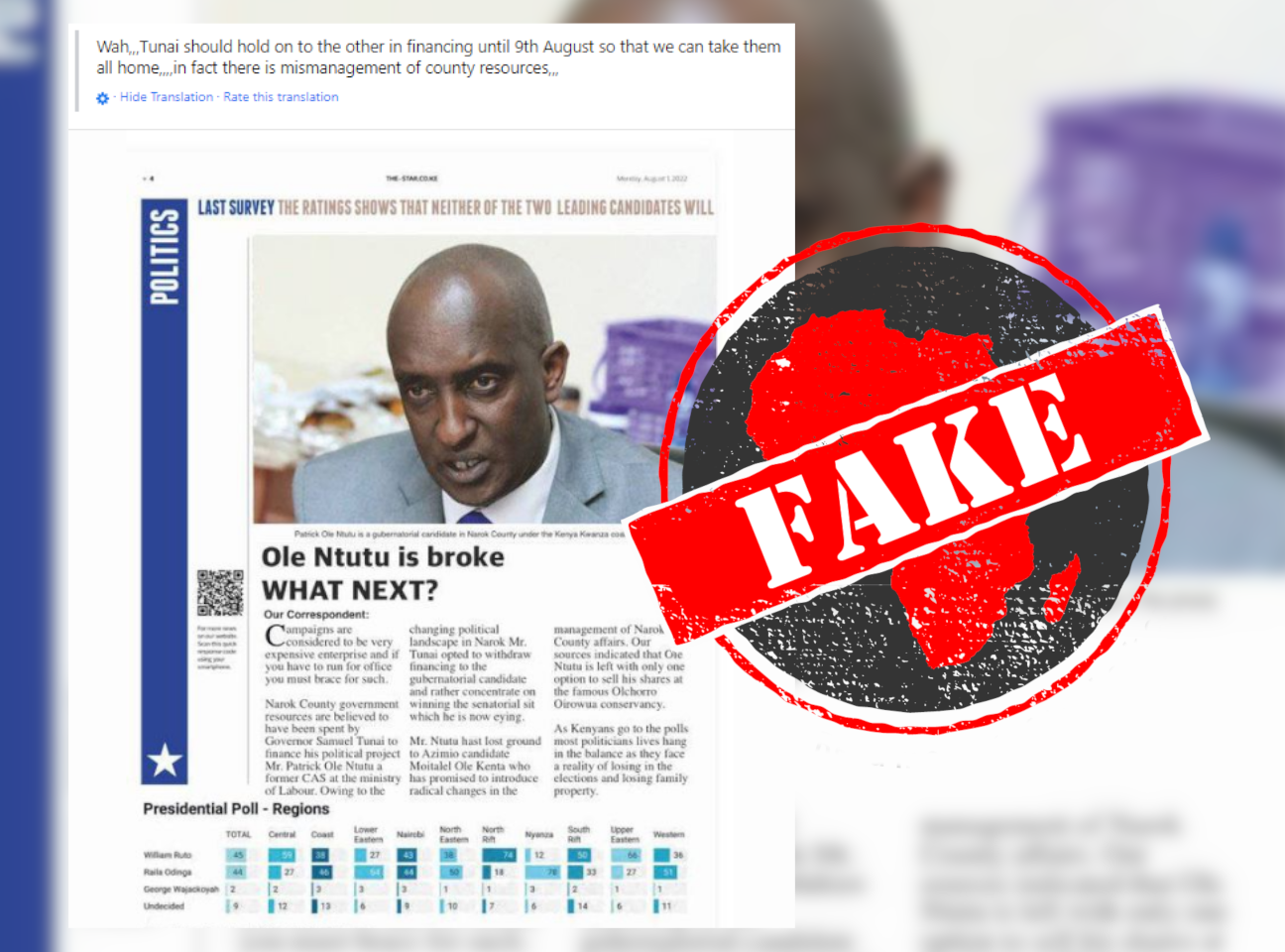“Ole Ntutu is broke WHAT NEXT,” reads the headline on what seems to be a clipping of an article in the Star, a Kenyan newspaper.
Patrick Ole Ntutu is the United Democratic Alliance (UDA) candidate for governor of Narok county in Kenya’s 9 August 2022 elections. The article has been circulating on Facebook since 1 August.
It claims Ole Ntutu’s campaign is floundering after current governor Samuel Tunai withdrew financial support.
Tunai, also a UDA member, is running for Narok’s senate seat. The article says he had been supplementing Ole Ntutu’s bid costs with public funds, but had now chosen to spend the money on his own campaign.
“Owing to the changing political landscape in Narok, Mr Tunai opted to withdraw financing to the gubernatorial candidate and rather concentrate on winning the senatorial seat which he is now eyeing,” the article reads.
It says Ole Ntutu has been “left with only one option” – to sell his shares in “the famous Olchorro Oirowua conservancy”.
In Kenya, conservancies help maintain the land and protect wildlife. Narok is home to the world famous Maasai Mara reserve, a tourist attraction known for its annual wildebeest migration.

Fake headlines harm democratic choices
The story may be colourful, but it’s completely false.
A search for the headline on the Star’s social media pages came up empty.
Instead, the newspaper posted the clipping on its official Twitter account, stamping it “FAKE”.
“Beware of FAKE news, If it’s not on our official pages, it’s fake!” the post reads.
Kenyans will vote in just a few days’ time. For months, disinformation about candidates has spread online in the form of fake headlines presented as if from trusted news outlets. This harms voters’ ability to make informed decisions.
Republish our content for free
For publishers: what to do if your post is rated false
A fact-checker has rated your Facebook or Instagram post as “false”, “altered”, “partly false” or “missing context”. This could have serious consequences. What do you do?
Click on our guide for the steps you should follow.
Publishers guideAfrica Check teams up with Facebook
Africa Check is a partner in Meta's third-party fact-checking programme to help stop the spread of false information on social media.
The content we rate as “false” will be downgraded on Facebook and Instagram. This means fewer people will see it.
You can also help identify false information on Facebook. This guide explains how.


Add new comment